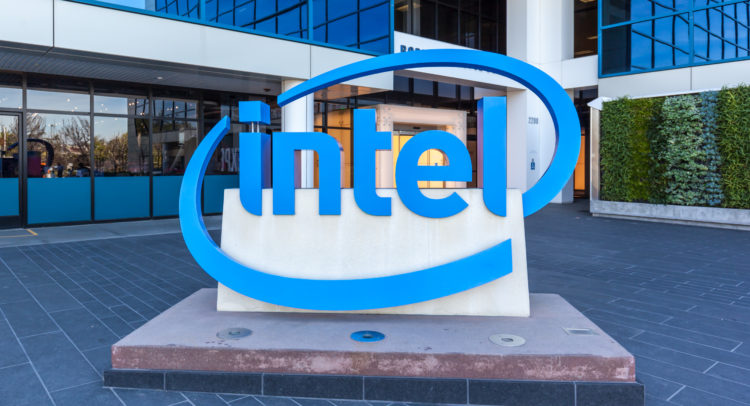Intel Corp. (INTC) shares fell dramatically on July 24 after announcing that it would see significant delays until 2022 for its latest cutting-edge nanometer (nm) chip.
Elevate Your Investing Strategy:
- Take advantage of TipRanks Premium at 55% off! Unlock powerful investing tools, advanced data, and expert analyst insights to help you invest with confidence.
The announcement marked one of the worst stock drops for the chipmaker since March, while conversely bringing a boost to Intel’s competitor Advanced Micro Devices (AMD).
At market close on Friday, Intel’s shares were down 16% at $50.59 per share, while AMD’s stock was up 17% at $69.40.
Intel CEO Bob Swan said on an earnings call on July 23, “We have identified a defect mode in our 7-nanometer process that resulted in yield degradation.” He added, “We’ve root-caused the issue and believe there are no fundamental roadblocks, but we have also invested in contingency plans to hedge against further schedule uncertainty.”
The contingency plans included “somebody else’s foundry,” according to Swan. The use of a third-party to assist Intel in manufacturing the chip has raised questions about Intel’s competency to produce cutting-edge technology amidst competition from AMD.
The delayed chips became the prominent news item even as the chipmaker posted positive Q2 earnings announcements. Intel reported on July 23 a net income of $5.1 billion or $1.19 per share, compared to $4.18 billion, or 92 cents per share for the same period last year. Revenue came in at $19.7 billion, up 20% year-over-year, and beating consensus estimates of $18.5 billion.
Bernstein analyst Stacy Rasgon said on July 23 that of the 45 Intel earnings calls he’s listened in-on during his career, their chip delay news made it the worst call he’s ever heard. The analyst noted, “From here, we see things growing increasingly painful as 7-nm delays are likely to overshadow anything good they can put forth.” He added, “While magnifying any negative events, all while they fight an existential conflict with themselves as they attempt to figure a way out of the hole they have dug.”
The analyst downgraded the stock to a Sell rating and set his price target to $45, which implies 11% downside potential.
Overall, 8 analysts assign Buy ratings, 15 Hold ratings, and 9 Sell ratings, giving INTC a Hold Street consensus. The average analyst price target stands at $57.52, suggesting 13.70% upside potential, with shares down 15% year-to-date. (See Intel’s stock analysis on TipRanks).

Related News:
Tesla Gains 4% After-Hours On Upbeat Q2 Earnings
Kimberly-Clark Rises On 2Q Earnings Beat and Upbeat Guidance
Netgear Surges Over 12% in Pre-Market On Big Earnings Beat
















